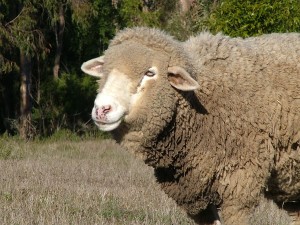A couple of weeks ago, I was being interviewed on a radio show and I talked about how people “infanticize” animals. I knew something was wrong with the word when I spoke it, but it wasn’t until after the show that I realized what. What I meant to say was “infantilize.” On reflection, though, I realized my made-up word actually says better what’s going on.
When we treat animals like eternal babies, we kill their spirits in a way. We don’t allow them to be the full beings they are. By talking to them in baby talk, dressing them in silly clothes, or otherwise infanticizing them, we keep them in a crippled state. If you’ve ever observed the difference between a puppy and an elder dog, you see how animals, like us, come into wisdom and dignity as they age. Puppies, like children, do silly things in the
exuberance of youth. The role of the adults in the pack is to teach the puppies as they grow how to stay safe and to behave responsibly toward the other members of the pack. I’ve experienced firsthand the wisdom of the elders in numerous species—sheep, donkeys, goats, deer, horses, birds, cats, dogs, and humans, to name a few—and I believe the same wisdom exists in the elders of every species.
Some human parents in history have tried to keep their children young into adulthood. Society openly condemns such parenting, viewing it as a psychological aberration. Nearly all of us would deplore an adult human doing this. So let’s let our animals grow up too.
Do we infanticize animals because we prefer that baby-like dependence? Or because babies never leave us? Or because we have trouble letting others be who they are rather than who we want them to be? Whatever the reason for infanticizing an animal, it blocks the richness and depth of relationship we could be having. So respect the dignity of the animal living with you and honor that animal’s wisdom.

